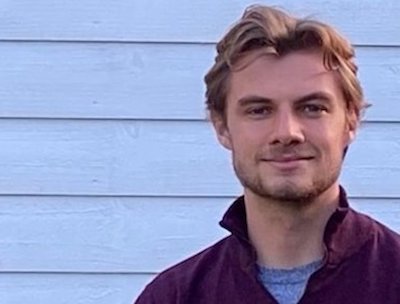We seek to create a welcoming environment for all of our students and staff, irrespective of background, and are strongly committed to promoting equality and diversity. Our activities include participating in Athena SWAN (a scheme to address gender equality in Higher Education), celebrating Black History Month, and fostering community engagement through our historical projects.
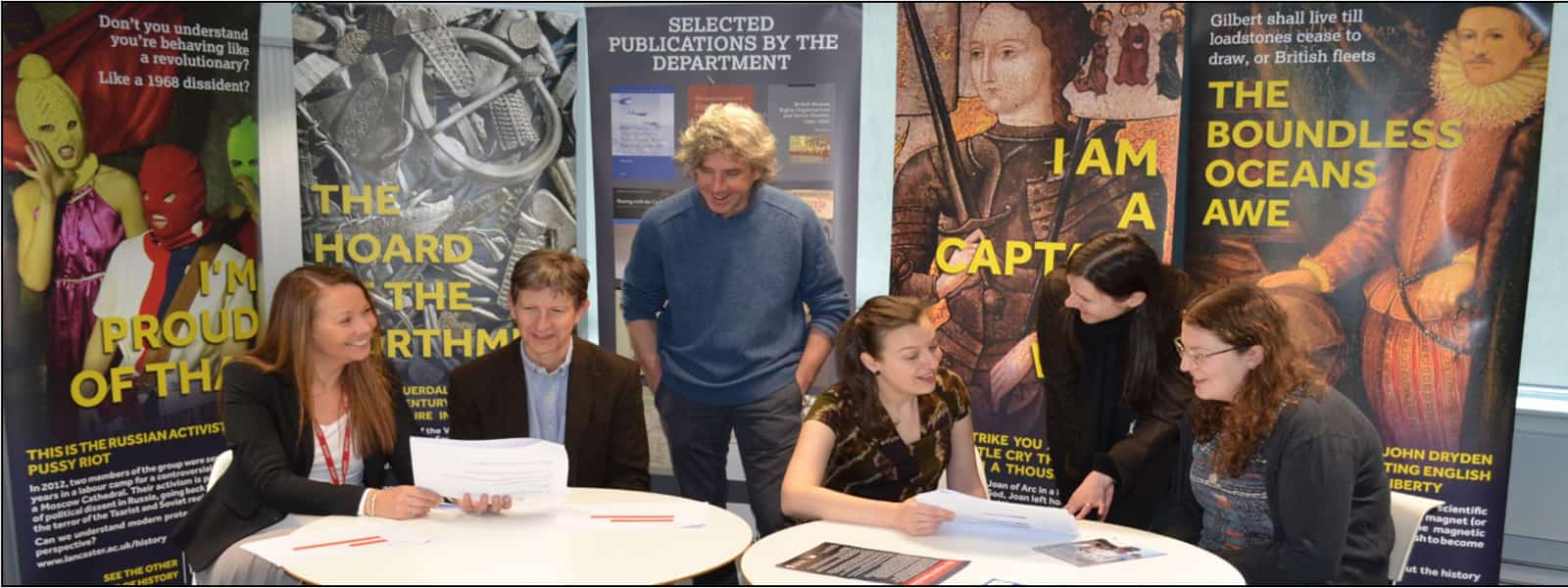
Our Departmental Community
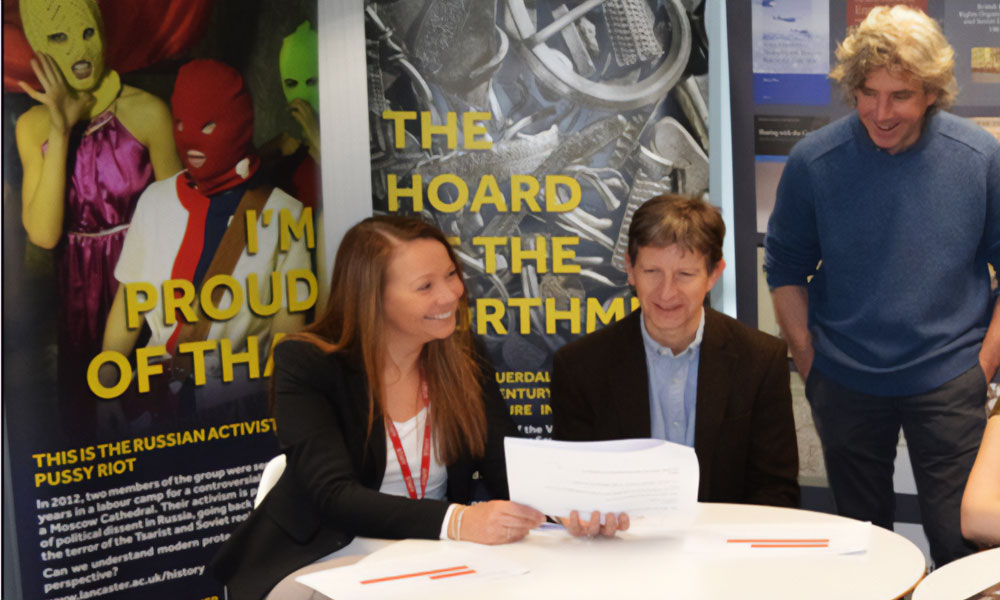
Athena Swan
We are committed to the principles of the Athena Swan charter, which recognises the advancement of gender equality in Higher Education. In 2021, the Department received a Bronze Athena Swan award in recognition of its commitment to advancing gender equality. Our application was prepared by a ‘Self-Assessment Team’, which comprised a cross-section of our staff and students.
Athena Swan Action Plan
View a copy of our Athena Swan Action Plan for 2021–2026 here.
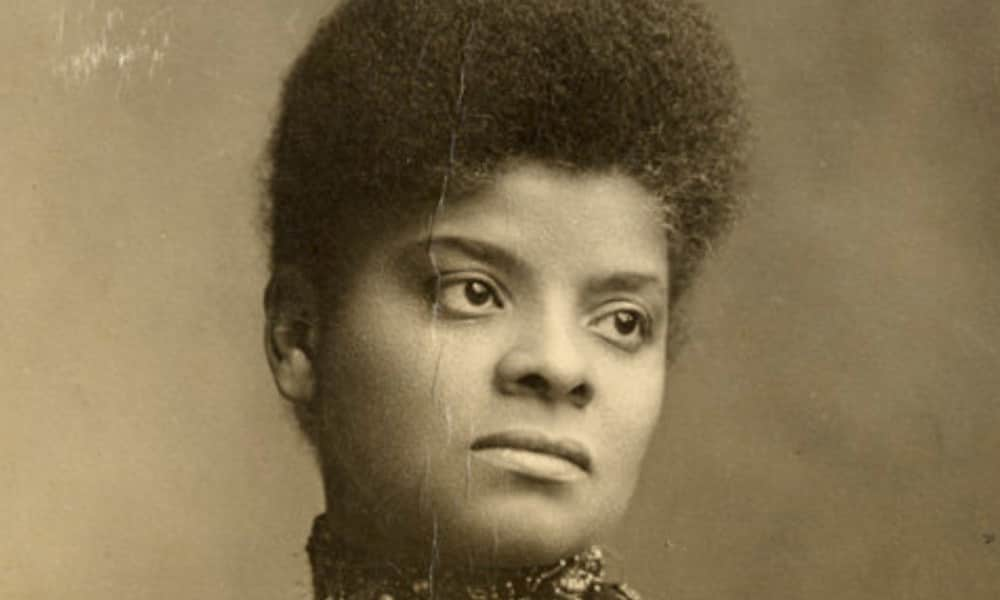
Celebrating Black History
The Department celebrates the historical contributions of people of black origin. Through our teaching and research, we explore the lives of black figures of the past, from William Sessarakoo, whose story connects the three regions of the Trans-Atlantic trade in enslaved human beings, to the pioneering political activist and journalist Ida B. Wells (pictured). Learn about their place in History on our YouTube channel.
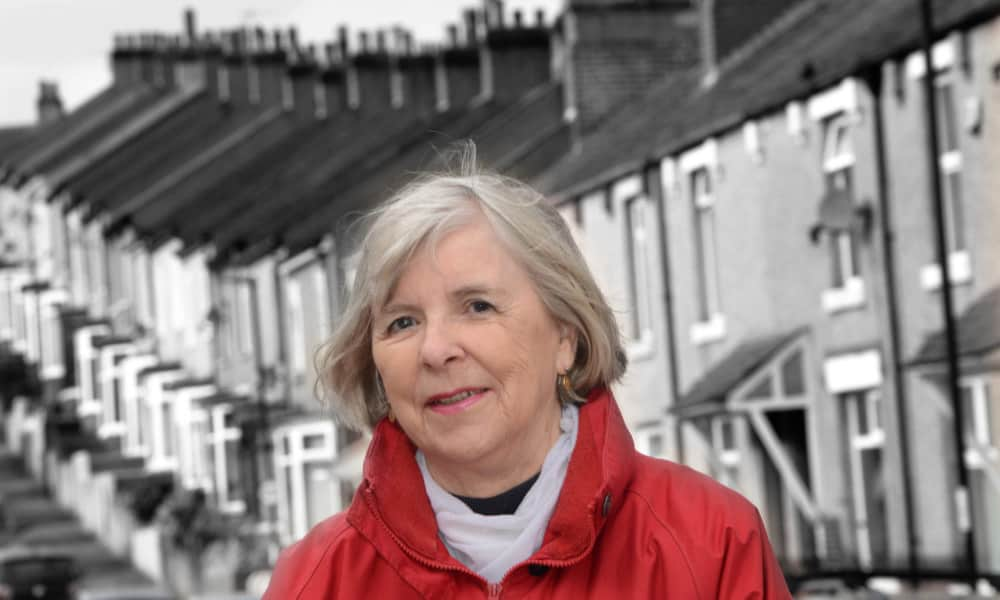
History and the Wider Community
We have a strong tradition of working with the wider community in Lancaster and across the North West. In 2019, two of our MA students coordinated events at which people brought in objects from c. 1890-1940 to create an online exhibition for the Elizabeth Roberts Working Class Oral History Archive.
Elizabeth Roberts Working Class Oral History ArchiveMeet our staff
Professor Patricia Murrieta-Flores
Paty is a Professor in Digital Humanities and Co-Director of the Digital Humanities Centre at Lancaster, and she convenes the modules 'Exploring the World of Digital Humanities' and 'Spatial Technologies for Historical Analysis' on the MA Digital Humanities, as well as teaching undergraduates. Her focus is the investigation of different aspects of space, place and time using a range of technologies including GIS, NLP, Machine Learning and Corpus Linguistics approaches. She is the Principal Investigator on the Transatlantic Platform (T-AP) funded project ‘Digging into Early Colonial Mexico: A large-scale computational analysis of 16th century historical sources’. Paty grew up in Mexico and first came to Lancaster as an Early Career Researcher.
Could you tell us a little bit about your background? Did you always know that you were interested in history? Or was there a moment when you realized you had a passion for the past?
I had what one could consider to be a somewhat unusual upbringing back in Mexico. One of my aunts is an archaeologist and, since I was a kid, I grew up among beautiful Mesoamerican imagery, pottery and excavation reports, roaming around the pyramids and archaeological sites in summer, and listening to the stories of exploration and historical wonders my aunt used to tell me. At the same time my parents, being physicists, encouraged me to experiment and question why things were the way they are, and I spent much of my time in the amazing labs of the Institute of Physics at the national university. I think this led me to the realisation when I was becoming a young adult that I really loved two things: the past and technology. I’ve been lucky enough to combine both through Digital Humanities.
You work connects archaeology to a relatively new field called digital humanities. Could you tell us a bit more about digital humanities and how it can transform our understanding of the past?
In short, digital humanities, or DH as we usually call it, is the application of theories and methods from computer science to solve research questions in the humanities (e.g. in history, archaeology, or literature, among others). This is to say that we can make use of really interesting computational approaches, such as Artificial Intelligence, to help us in the analysis of the past. For instance, in my research, I’m ‘teaching’ the computer to automatically identify historical concepts of interest to me in very large historical collections, analysing patterns in a Big Data style. What this means in practice is that, for the very first time, we are able to explore and identify information that can help us with our research in a fraction of time, looking through thousands of records that otherwise would take us a lifetime to explore. And this is only one of the innovative uses of technology in history that we are developing. Virtual reconstructions, 3D scanning, and advanced spatial technologies are some of the things we do at Lancaster.
Have a look at some of the projects taking place at the intersection of DH and history:
What's the topic you most enjoy teaching? What makes it special for you and your students?
Within DH, I specialise in the study of landscape, space, and place using Geographic Information Systems (GIS). You can think of GIS as a Google Maps on steroids. Technologies such as this one can be really important to learn because history and archaeology are spatial in nature. This is to say that we are interested in questions of ‘when’ and ‘who’, as much as in issues of ‘where’ - or how geographies might play a role in historical events. GIS is a powerful technology that is used in many industries, so I truly love when my students realise that they are acquiring an important skill that can help to land them a job! In addition, I encourage my students to be highly creative in their use of technologies. This year, our students had brilliant GIS projects. For instance, one of them explored the narratives of American Psycho, while another looked at the possible uses of mapping to investigate the presence of black Africans in Early Modern England!
You also work on the history of Mexico, especially its indigenous culture before and after the Spanish colonization. Why do you think it's important for students to study this topic?
Because imperial knowledges - and related exclusive and oppressive views - are still embedded in the modern world, studying subaltern and alternative accounts in History is of utmost importance. Acknowledging and understanding the existence of different world-views and epistemologies is what might lead us someday to more equal societies. The arrival of the Spanish brought a great deal of destruction and oppression, as well as a different world-view to America (and by America I mean the continent!). Traditional and colonial understandings of history have taught that the Spanish ‘conquered’ in technological, social, political and economic ways the Indigenous civilizations. However, these 'conquered' peoples were not the passive actors that they have often been assumed to be. Most of accounts have considered the Spanish side, but there is a wealth of information produced by Indigenous societies that has barely been explored, and it has been only in the past few years that other interpretations have started to emerge.
I’m interested in the events of the 16th century because this is the time when the contact between these two very different world-views take place. The Indigenous societies certainly adopted and adapted western conceptions and technologies, but they also contested and challenged them. It takes just a look at the incredible maps of the Relaciones Geográficas (the Geographic Reports of New Spain) to get a sense of how Mesoamerican civilizations used and combined European and Indigenous understandings of space, creating new discourses that are alive still today. Historians and archaeologists have the power to bring these alternative narratives to the forefront, but also to provide a better understanding of past dynamics and how to change them.
#decolonise #blacklivesmatter #brownlivesmatter
We'd love to hear more about your journey into history. What would you say is the biggest challenge you had to overcome to get where you are today?
At an academic level, the biggest challenge for me was to find people I could dream ‘crazy’ projects with. This is to say, to imagine research that could combine unusual views and approaches that have never been attempted before. I started to encounter like-minded people during my postgraduate studies, but I found these really creative and unusual partnerships when I first started working at Lancaster as an Early Career Researcher.
At a personal level, I think my biggest challenge has been to overcome damaging ideas about myself. Growing up I felt great pressure to do well at everything I attempted. There is in me a sort of Latin American mentality that states that in order to ‘make it’, you have to work harder than anyone else. Although one might think that this can be an advantage, it actually provokes a constant state of anxiety for ‘not being good enough’, which was really difficult to shake off. That’s why I love to engage with students not only in academic terms, but also at a more human level. I know the anxieties and expectations that being at university can bring, but also how, with the right support, you can thrive.
And what's the thing you love most about your research?
I think there are two things that immediately come to mind. The first is the process of discovery. I enjoy immensely taking an idea, a hypothesis or a research question and attempting to solve it, whatever the answer might be. The second is interdisciplinarity. I love to work with people that bring different perspectives to my own. To learn from others is one of the most rewarding things about my research, and the process of building knowledge together is really exciting to me.
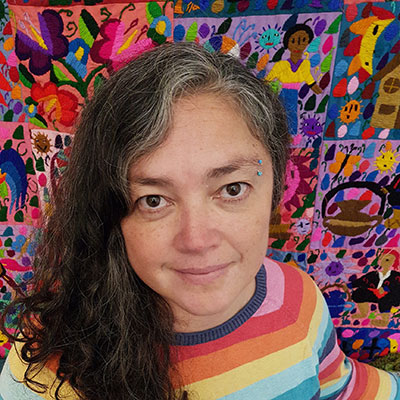
Meet our students
Meredith Guthrie
In autumn 2020, Meredith started the second year of her PhD, having come to Lancaster from the USA for her Master's Degree. She is working on a comparative study of minority governments in England c.1200-1500, with a particular focus on authority and practice in the conduct of domestic politics and foreign diplomacy. Meredith is also a member of the Centre for War and Diplomacy at Lancaster, where she holds an Iredell Digital Internship, and is Coordinating Editor and Deputy Editor for Medieval History of EPOCH magazine, a non-profit publication produced by members of the history community at Lancaster University.
How did you end up deciding to do a PhD in history? Is it something you've always wanted to do?
I come from a family that values the historical imagination, but I took the scenic route to the PhD. I did my undergraduate work at the University of Texas in Austin (2004) and then spent several years working in small business development. There is a surprising amount of overlap between the study of history and small business management that was not apparent to me for a long while. After a decade of rewarding work, I found myself in the position to make some changes in my career path. I landed on medievalism after several years of independent learning and came to Lancaster in 2018 for my Master's.
You work on medieval history. What attracts you to the period?
Medieval history brings together an intriguing combination of analytical thinking and storytelling. All historical research requires some detective work (an admittedly fanciful term, but one that I think holds true). Because medieval history in the academic sense can be fairly far removed from modern sensibilities, it forces the researcher to approach the source material in often abstract ways. You then have to construct the conclusions in a manner that non-specialists can appreciate, letting some creative processes unfold. The same can be said of many avenues of historical research, but I think I landed specifically on medieval history because of the political structures and ideas of power that were evolving in those centuries. I find it fascinating that people today wrestle with many of the same questions as people from the thirteenth century.
Could you tell us a bit more about your research project? What do you hope to accomplish through your work?
My research looks at English minority governments - in other words, those instances in the medieval period when a child or minor came to the throne. These are interesting periods of transition when the systems of central government had to be modified or re-contextualised to accommodate the immediate needs of the kingdom. My research looks both at how those at the helm of government formed these interim regimes and, subsequently, how they addressed certain political challenges that arose during their administration. Understanding the principles that guided the political elites as they managed these crises speaks to how ideological parameters were adapted out of practical necessity.
What would you say is the most challenging thing about doing a history PhD? And what's the most rewarding thing about it?
They are one and the same. History requires great cognitive flexibility: the ability to think abstractly and creatively within the limitations dictated by time and place. It requires that the researcher explore a range of seemingly infinite possibilities, refine questions and methods, and then develop a measurable and practical plan of execution. This process works concurrently with the panning of data and sources that inform our understanding of the past. It can be extraordinarily challenging keeping all this information mentally filed away for reference, even with the best digital aids available for modern researchers, and especially to shift between differing sets of mental faculties. It also cultivates a deep sense of personal pride as the process unfolds.
What's it like doing a PhD in history at Lancaster?
Lancaster has an exceptionally active and dynamic postgraduate community that is bolstered by a supportive faculty. The department ensures that postgraduate researchers have access to both professional and personal resources, and this integrated research community allows for our natural curiosity to thrive under the pressures of rigorous academic standards. The university is situated in an area of rich natural beauty and the city has a distinct sense of identity. When considering all aspects of Lancaster’s qualities, the university is remarkably well-equipped to provide room for academic research and professional growth.
We've heard that you're involved with a fantastic new history publication called EPOCH magazine. Could you tell us more about, and how it came about?
EPOCH is the history magazine produced by the PhD students in the department. Our original intention was to provide a supplementary platform for our annual Lancaster Postgraduate History Conference. When the complications of the COVID-19 pandemic became more apparent, we saw an opportunity to offer a free public forum for postgraduate research. With the support of the department, the postgraduate community has created a scaffold on which we can develop our professional skill sets that simultaneously serves the wider historical research community.
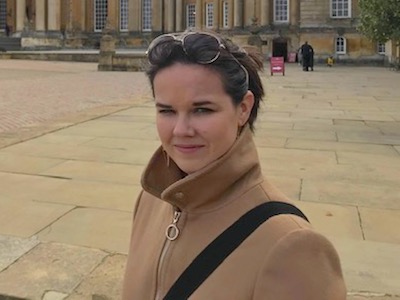
Abby Masangya
Abby is a current (2022-23) Postgraduate Student on our MA History Programme. Having just completed her first term we asked Abby about her experience on the programme so far and what she is looking forward to in the coming year.
"Undergoing the MA programme is an independent endeavour, markedly different from the structure provided by the History BA. There's a lot more autonomy with things such as choosing your own essay questions and managing a sparser timetable.
Apart from the core History module, I have only had 'Introduction to Latin Translation for Historians' so far, which I have really enjoyed. As [this module] is exam based, it is quite a reprieve from an otherwise essay-heavy programme and it is really rewarding to see where you're getting things correct.
The highlight of the MA programme has been getting involved in the History postgrad community through events such as the fortnightly PGSem [Seminar Series] and the Lancaster Historical Postgraduate Conference (LHPC). While an MA is more intense, it doesn't mean you can't get involved in extracurriculars; outside of History I am part of the Swing Dance Society. Lancaster's history postgrad community is quite close knit. It's definitely a good idea to put yourself out there because you'll make good friends and receive academic support and advice from people who have been in your shoes.
Because most of my modules take place next term, I'm pretty much looking forward to everything!
But I am especially looking forward to completing my placement assisting with Lancaster LitFest as part of the 'Outreach, Heritage, and Public History Placement' module."
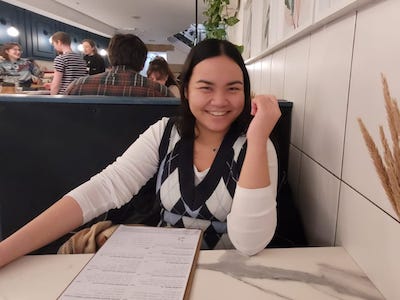
Meet our graduates
Philippa Lazarus
Philippa completed her BA in History in 2021, and she was awarded the Department’s Lewis Hughes Prize, which recognises the best performance in a special subject module. We were really pleased that she decided to stay with us to complete an MA, and she’s currently finishing the medieval pathway of our History MA programme.
1. What drew you to study history at university? And why did you end up choosing Lancaster?
I grew up visiting National Trust properties and reading stories set in the past. I loved immersing myself and walking in other peoples’ shoes (or sandals or boots) and thinking about how they changed directions, maybe of society or for themselves, and how that could make me think about decisions in my life.
The decision to study history at university was easy, but I knew that I wanted to do a specific course which would include ancient, medieval and modern history as I did not want to be limited by breadth; I loved all of it. Lancaster was therefore a perfect option, offering the course I wanted in a very historic city. Why would you not want to study in the shadow of an eleventh-century castle?
2. What was it like when you started your history degree? What surprised you most? And what was your most memorable experience?
I started my degree back in 2018, which seems almost historical from a vantage point in post-pandemic 2022. I was really interested in the minor module scheme that Lancaster provides, which allowed me to study a subject alongside history. I chose politics, but decided not to continue with politics in my second-year and graduated with a single honours history degree. However, the opportunity to branch out helped confirm the continuation of my enjoyment in the subject from school to undergraduate (and now into postgraduate) studies.
The most memorable experience was a lecture I had on the Reformation. We were all in the lecture theatre when the lights dimmed, a picture of a stained glass window appeared on the whiteboard and Gregorian chanting began from the speakers. A figure then walked down the steps, speaking in Latin and a person behind me started shouting at him, ‘We cannot understand you! Why do you not face us? A relationship with God should not have to go through a priest!’ It was altogether a very innovative take on how Protestants saw the Catholic Church and has stuck with me!
3. After finishing your first degree, you stayed on at Lancaster to complete an MA in History, with an emphasis on Medieval and Early Modern Studies? How did completing your first degree prepare you to take this step?
Despite completing my first degree during a pandemic, it provided me with valuable skills that I have utilised over this year. The change of working remotely and having to plan more time effectively certainly came into play. The knowledge that I acquired from my undergraduate modules has stayed with me and helped inform my choice of my MA course. With the loss of discursive in-person learning at undergrad because of the pandemic, I wanted to make sure that I took advantage of my postgraduate sessions and have loved being back in the same room as my fellow students. There is certainly no substitute to that, although the online systems were a brilliant backstop.
4. What have you enjoyed most about the MA in History programme so far?
I have really enjoyed learning medieval Latin. I studied Latin at school, and it really helped my understanding of the primary sources at undergrad. But John Thorley’s Latin course for the MA both taught me the specific nuances of the Medieval use of the language and the social context for why some of those terms developed, like the relative wages for a labourer and how fields were measured and divided. The local aspects of the sources that we used over the course also made it seem much more personal than those you typically see in lectures or seminars, as those sources tend to come from prestigious courts. The charm of the Latin is that some of the clerks appear to have as strong a grasp on the language as me!
5. What lies ahead for you after you’ve completed your MA? Do you have any specific plans?
I am not currently considering further study at the moment. I am looking forward to getting into the world and making my mark. Currently, I am considering working abroad for a few months before applying for proper jobs, which should be exciting and will definitely be utilising Lancaster’s careers service to help. Regardless, I know that the development of my skills from my degree will stand me in good stead to keep going through the employment process and on the other side, and my love of history will certainly continue.
6. What advice would you give to someone looking to follow in your footsteps?
I believe that studying history makes you a more compassionate and well-informed person, and we certainly need more compassionate and well-informed people in the current political climate. History can be cyclical, and we can certainly see similarities between contemporary events and those that have happened before. If you are looking to study history, or even to just read about it for fun, keep studying and keep learning. Take modules on subjects that you know nothing about. I have studied sex and satire in the early modern period, the Vietnam War, the Crusades and Ancient Rome: subjects that I never covered in history at school. Humans have the ability to learn from our mistakes and history gives us the road map to do so.
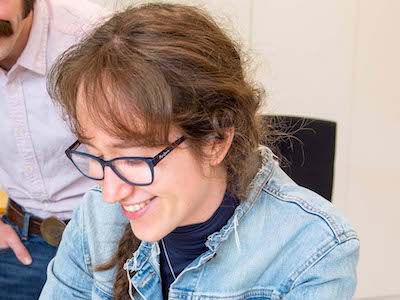
Conor Walker
Conor completed his BA in History in 2020 and an MA in Digital Humanities in 2021. He is now a GIS Consultant at Arup, where his work involves implementing GIS technology to Arup’s projects and promoting digital innovation throughout the firm. Conor is also passionate about Ancient Greece, ancient concepts of geography and classical historiography.
1. What drew you to study history at university? And why did you end up choosing Lancaster?
I have always known that I wanted to study history at university. Since I was young, I have always been fascinated by the past, and when it came to deciding my degree, it was clear that I wanted to take this further. I visited a lot of universities and their history departments, but I was most impressed by the friendly and welcoming nature of Lancaster’s staff. I was also attracted by the department's broad range of subjects and modules, particularly the opportunity to study ancient history, as I had not had this opportunity in school or sixth form. That and Lancaster’s climbing wall: I can’t deny that the university climbing wall was a major factor in swinging my choice towards Lancaster!
2. What was it like when you started your history degree? What surprised you most? And what was your most memorable experience?
Studying history at university is a big step up from sixth form or college. Suddenly you are living away from your family, in a new city and faced with a completely different kind of learning environment from what you’re used to. Because of this, it’s easy to be overwhelmed in the first months of your degree as you come to grips with university life and independent learning, but by the time you get through the first couple of weeks, you'll be plain sailing.
The most surprising aspect of my degree was discovering the sheer number of resources on offer from the university library and digital collections. I would definitely recommend anybody starting their degree to have a really good explore of the resources on offer before beginning their own research.
I have had many memorable experiences as a result of my degree, from spending a month in Greece with the British School at Athens to completing my dissertation in the middle of a pandemic. But my most memorable experience was the first lecture I had on ancient Greece during my first university term. This lecture introduced me to the joy of studying the ancient world, and it has profoundly influenced my academic interests since.
3. After finishing your first degree, you stayed on at Lancaster to complete an MA in Digital Humanities? How did studying history prepare you to take this step?
I think that my history degree left me well prepared for a move into digital humanities. As a result of my first degree, I had a solid grounding in my historical subject matter, and I had developed the basic skills needed to research and write about the past. This meant that when it came to my MA, I did not have to devote too much time to covering the same ground. As such, I spent most of my MA studies exploring the broader field of digital humanities and getting to grips with the technologies used.
4. Since completing your degree, you have taken up a position as a GIS analyst with Arup. Could you tell us about what your job entails?
In short, my job entails using GIS (geographical information systems) technology and my wider digital humanities skillset to help fulfil Arup’s projects. For example, my tasks can range from visualising project data on maps to compiling spatial databases and performing spatial analysis. I also spend quite a lot of time researching and collating information (and data) for use in current and future spatially orientated projects.
5. Do you think completing your studies in history at Lancaster has helped you to prepare for your current career? If so, how?
I believe that my studies at Lancaster have left me very well prepared for my current career. My undergraduate degree in history has helped me develop the researching, referencing, writing, problem-solving, communication, attention to detail and project management skills that you would expect from a humanities graduate. The skills developed throughout a history degree are essential to almost every aspect of a successful professional career, and as such, they are incredibly sought after in the current job market.
Alongside my undergraduate degree, my MA in Digital Humanities has prepared me for my current role. Lancaster’s MA in Digital Humanities introduced me to, and provided me with, a solid foundation in geospatial technologies. Whilst there is always more to learn when it comes to GIS, and I am receiving further training as part of my new role, I would not have this job without my MA in Digital Humanities.
6. What advice would you give to someone looking to follow in your footsteps?
My time at Lancaster was a great experience. I recommend studying history at Lancaster to anybody interested in broadening their knowledge of the past or those wanting to gain some invaluable skills to boost their employability. There is plenty of help and guidance on offer throughout your studies on how to get the most out of your degree.
To those considering an MA in Digital Humanities but who might be put off by the technical aspect of the MA, don't worry at all! It is expected that when you start the MA you will only have the standard technical skills of any humanities graduate. By the end of the MA in Digital Humanities, you will not only have a solid understanding of an array of state-of-the-art digital technologies but also how to use many of these technologies in practical, real-world applications.
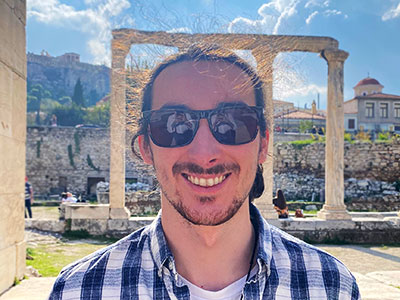
William Bowler
In Summer 2020, William Bowler received the First Generation Undergraduate of the Year Award, sponsored by HSBC, at the TARGETjobs Undergraduate of the Year Awards. Since finishing his History degree, and writing a distinction-winning dissertation on the justification of Charlemagne’s Saxon Wars, Will has commenced HSBC UK’s Wealth and Personal Banking graduate scheme. He is currently working as a product manager in retail banking.
1. What drew you to study history at university? And how did you end up choosing Lancaster?
I really enjoyed studying history at A level, particularly the Reformation and Charlemagne, so much so that I wrote my dissertation on Charlemagne's Saxon conquest. I attended the Lancaster University History Insight Day and was immediately attracted to the Department's array of module options and the positive attitude of lecturers.
2. When you started your first year, what was it like? What were the biggest challenges? And what most surprised you?
I really enjoyed my first year at university. I had rediscovered my passion for swimming on the university team and was thoroughly enjoying the wide scope of 'From Ancient to Modern' (HIST100). I was learning about periods and peoples of history that I had never previously encountered, including early modern Mesoamerican and the Viking age. One of the biggest challenges was learning how to utilise the vast array of resources available to students effectively. At first, I was bewildered by the volume of primary and secondary source materials available to us.
3. You're in your third year now? What would you say is the most important thing you've learned/skill you've gained studying history at Lancaster?
One of the most important skills I gained whilst studying history is being able to digest information. When conducting research, studying an array of material is crucial to understand a topic. To do this effectively – and under time constraints! – is a skill that I've developed year-on-year and is a massively useful transferable skill.
4. Earlier in the term, you won a national prize at the TARGETjobs Undergraduate of the Year Awards. Could you tell us more about that prize?
I was the winner of the First Generation Undergraduate of the Year Award in Summer 2020. The award was sponsored by HSBC, and I was awarded a place on the Wealth and Personal Banking internship programme. The internship was an incredible experience. I got to work with one of the largest banks on the globe. I developed countless skills during the internship and was fortunate enough to work on several projects and gain invaluable experience in the industry.
5. Do you think studying history helped you win the TARGETjobs prize? If so, how?
Studying history massively helped with my application for the Undergraduate of the Year. Source analysis has been a particularly useful skill that I have learnt from studying history as the methodology is an extremely transferable skill. Being able to question the authenticity and purpose of a document, for instance, is incredibly important, especially when analysing data from a plethora of sources, who are all writing for different purposes and audiences.
6. What advice would you give to anybody looking to follow in your footsteps?
For those looking to apply to the Undergraduate of the Year award I would recommend using the services on offer at Lancaster University. The Base and numerous other careers teams, were extremely helpful during the application process and helped me prepare for HSBC's assessment centre.
